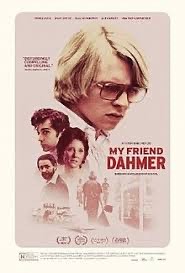Mentally Ill Offenders: Are the actual offenders?
Mentally-Ill? Offenders? or Mentally-Ill Offenders?
A criminal
offence is a violation of the law, whereas a mental condition is defined as
behaviour that is characterised by a general lack of logic, as well as distress
or malfunction. Illegal activity, on the other hand, is often very rational;
conduct arising from mental disorder may or may not be criminal, and people
with mental disorders may or may not be legally liable for the action that
mental disorder creates. As a result, while some crime is the result of mental
illness, considering all crime to be a symptom of that illness would tend to
remove any reasonable limitations to the concept of mental illness while also
causing havoc with commonly held notions of morality and accountability.
Antisocial
personality disorder (APD) and psychopathy, both personality disorders, appear
to have the strongest link to criminality among non-substance-related mental
diseases. People with these diseases are often aware of reality and so
accountable for their actions. The inclusion of APD in the fourth edition of
the American Psychiatric Association's Diagnostic and Statistical Manual of
Mental Disorders (DSM-IV-TR) has made it widely recognised as a mental
disorder, but its classification as such is problematic.
APD, for example, is defined by a pattern of persistent, significant antisocial behaviour that excludes cognitive or affective disorders. These diagnostic criteria almost guarantee that APD will be identified in large numbers among criminals, but they provide little cause to consider the condition a disorder in and of itself. Psychopathy is also common among inmates. Although psychopathy is not an officially accepted diagnostic category in the DSM-IV, there is sufficient evidence to support it, and many doctors utilise it. Many psychopaths break the law, and the condition is characterised by a wide variety of psychopathology, including severe egocentrism and the inability to feel empathy or guilt. Psychopathy's criteria are more easily classified as psychopathological than antisocial behaviour alone, However, many argue that psychopathy is merely a name for people we loathe and fear, rather than a true illness. Many people who engage in prolonged, major antisocial behaviour are not psychopaths, and many psychopaths are capable of avoiding persistent, serious antisocial behaviour.
The following are the most common psychological problems linked to history's most notorious American criminals:-
SCHIZOPHRENIA
Schizophrenia
is a wide-ranging (and frequently misunderstood) mental condition with symptoms
ranging from hallucinations and delusions to emotional flatness and catatonia,
according to WebMD. It's one of the most common mental illnesses found among
criminals, particularly serial killers:
- In the 1970s, David Berkowitz, better known as "Son of Sam," murdered six people, alleging that his neighbor's dog had instructed him to do it. He had paranoid schizophrenia, according to his diagnosis.
- Ed Gein, the terrible inspiration for Norman Bates, Buffalo Bill, and Leatherface in fiction, murdered and disfigured his victims, often storing grisly "trophies" in his possession.
- Chase, dubbed "the vampire of Sacramento," murdered six people and drank their blood in California.
- Daniel Gonzalez murdered four individuals in 2004 and claimed he had been inspired by ‘ Nightmare on Elm Street ‘
- In 2011, Jared Lee Loughner was diagnosed with paranoid schizophrenia after being convicted of killing six peo In 2011, Jared Lee Loughner was diagnosed with paranoid schizophrenia after being convicted of killing six people and wounded 13 others, including U.S. Representative Gabrielle Giffords.
- Twenty doctors have diagnosed James Eagan Holmes, who is on trial for the 2012 "Batman killings" in Aurora, with schizophrenia.
BORDERLINE PERSONALITY DISORDER
Impulsive actions, strong mood swings, feelings of poor self-worth, and interpersonal connection issues are all symptoms of this illness (WebMD). It has also been diagnosed among some of the U.S.’s most notorious serial killers. This appears to be more common among female criminals:
- Aileen Wuornos, the woman who inspired Charlize Theron's 2003 film "Monster," confessed to seven killings in Florida. She was also given an antisocial personality disorder diagnosis.
- Between 1978 and 1991, Jeffrey Dahmer, commonly known as the "Milwaukee Cannibal," murdered seventeen boys and men. He also struggled with a lot of alcoholism.
- Kristen H. Gilbert used deadly amounts of epinephrine to induce cardiac arrest in four patients at a Northampton, Virginia hospital where she worked as a nurse.
ANTISOCIAL PERSONALITY DISORDER
This mental condition, once known as "psychopathy," is characterised by a complete disdain for the sentiments of others. APD patients may lie, act violently, or break the law without remorse. According to WebMD, while APD affects only 0.6 percent of the population, it can affect up to 47% of male offenders and 21% of female inmates. It’s also been diagnosed among three of the most ruthless american serial killers : -
- Ted Bundy, an infamous killer and necrophile, confessed to 30 murders in the 1970s.
- John Wayne Gacy, known as the “Killer Clown,” raped and killed 33 boys and young men in the 1970s.
- Charles Manson, leader of the “Manson Family” cult and mastermind behind the 1969 murders at the home of Sharon Tate, was diagnosed with antisocial personality disorder.
Even now, mental illness in prison populations and among offenders is a problem in the United States. Rehabilitative services and mental illness treatments must be enhanced in order to reduce jail recidivism and violent crime rates.
PSYCHOLOGY BEHIND MENTALLY ILL OFFENDERS
In the wake of several mass shootings in the United States, the relationship between psychiatric illness and criminality has been the subject of heated debate and examination. While the heightened focus and media attention on mental health in the aftermath of such tragedies is a desirable development, the relationship between mental illness and criminality is all too often muddled.
People with mental illnesses are thought to be more likely to perpetrate acts of violence and hostility, according to popular thinking. The public's opinion of mental patients as dangerous people is often based on the media's portrayal of criminals as "mad" people. A substantial body of evidence shows the opposite. Victims of violent crime are more likely than perpetrators to have mental illnesses. This prejudice extends to the criminal justice system, where people with mental illnesses are considered as criminals, arrested, accused, and imprisoned for lengthier periods of time than the general public.
Function
The inaccurate categorization of all criminals as persons with mental illness is an important factor in the false equivalence of psychiatric disease and criminality. The general public perceives behavioural and conduct issues as symptoms of a psychological ailment, leading to the mistaken public assumption that criminality is synonymous with psychiatric illness. The high levels of reported mental illness in jail and prison populations are primarily due to false labeling of criminals as having a psychiatric illness. These figures are not always based on thorough medical and psychiatric evaluation and diagnosis, but rather as a result of social factors.
The high rates of reported mental illness in jail and prison populations are mostly owing to criminals being falsely diagnosed with psychiatric disorders. These results are often the product of societal circumstances rather than extensive medical and mental evaluation and diagnosis.
Antisocial personality disorder (ASPD) is one such diagnosis that is applied haphazardly to many people in prison. As a result, it's debatable if ASPD is a psychiatric disorder or simply a society moral judgement. The term is increasingly being used to portray criminals as psychiatric patients. To avoid criminals using the cover of psychiatric diagnoses to avoid criminal punishment, physicians must ensure that diagnoses of personality disorders such as APSD are made only when distinctive traits arise in infancy and adolescence.
Issues of Concern
People with mental illnesses are arrested and imprisoned in disproportionately large numbers, typically due to a lack of awareness and resources for dealing with them. As a preventive law and order measure, the police frequently arrest these persons for minor offences such as jaywalking or wandering behaviour. According to one study, 12% of adult psychiatric patients treated in the San Diego County health system had previously served time in prison, while 28% of Connecticut residents treated for schizophrenia and bipolar disorder had previously served time in prison.
Many psychiatric patients were forced to live on the streets as a result of the closing of state psychiatric hospitals, which began in 1960 with the deinstitutionalization movement. As a result, these patients were more likely to come into touch with the police and the courts. The situation is made worse by a lack of training and personnel in the court system, which could explain why people with mental illnesses are making up an increasing percentage of the jail and prison population. Many of the symptoms of psychiatric diseases include antisocial or illegal actions, such as wandering. As a result, a false causal link between psychiatric disease and criminality has emerged.
Want to know more about them? Watch
movies/series related to the above mentally ill offenders ?
- David Berkowitz :- Son of Sam : the hunt for a killer
In the late 1970s, David Berkowitz plays a cat and mouse game with the NYPD. Interviews and archive footage explore the twist and turns of the investigation into the 44 caliber killer.
Where to watch :- Amazon Prime Video
- Richard chase :- Lore: Deadly Obsession
Film depicting the serial killer and cannibal Richard Trenton Chase who killed 6 people in the late 1970s.
Where to watch :- discovery inc
- James eagan holmes :- The james holmes conspiracy
Detailing the life of James Eagan Holmes who
was the suspected perpetrator of a mass shooting that occurred on July 20,
2012, at a movie theatre in Aurora, Colorado. He had no criminal background and
has been diagnosed with schizophrenia
Where to watch :- youtube
- Aileen Wuornos :- Monster
Shortly after moving to Florida, longtime prostitute Aileen Wuornos (Charlize Theron) meets young and reserved Selby Wall (Christina Ricci) and a romance blossoms. When a john (Lee Tergesen) attempts to brutalize Aileen, she kills him and resolves to give up prostitution. But supporting herself and her new girlfriend through legitimate means proves extremely difficult, and she soon falls back on old ways. More johns die, and Selby can't help but think her new friend is responsible.
Where to watch :- Netflix
- Jeffrey Dahmer
My Friend Dahmer a 2017 American biographical psychological drama film written and directed by Marc Meyers about American serial killer Jeffrey Dahmer. The film is based on the 2012 graphic novel of the same name by cartoonist John “Derf” Backderf, who had been friends with Dahmer in high school in the 1970s, until the time Dahmer began his killing spree in 1978. The film stars Ross Lynch as Dahmer, Alex Wolff as Derf, Dallas Roberts as Jeffrey’s father, and Anne Heche as Jeffrey’s mother.
Where to watch :- AMAZON PRIME
- Ted Bundy
Extremely Wicked, Shockingly Evil and Vile is a 2019 American biographical crime drama film about the life of serial killer Ted Bundy. Directed by Joe Berlinger with a screenplay from Michael Werwie, the film is based on Bundy’s former girlfriend Elizabeth Kendall’s memoir, The Phantom Prince: My Life with Ted Bundy. The film stars Zac Efron as Bundy, Lily Collins as Kendall, Kaya Scodelario as Bundy’s wife Carole Ann Boone, and John Malkovich as Edward Cowart, the presiding judge at Bundy’s trial. The title of the film is a reference to Cowart’s remarks on Bundy’s murders while sentencing him to death.
Where to watch : NETFLIX
*All the images are taken from India Tv and Wikipedia, we provide full credit to the sources and no credit is taken by this page.
-An article by Kabeer Batra
To get more interesting updates follow us on our
Instagram Page: https://instagram.com/jailbirds_theantisocials?utm_medium=copy_link






Comments
Post a Comment